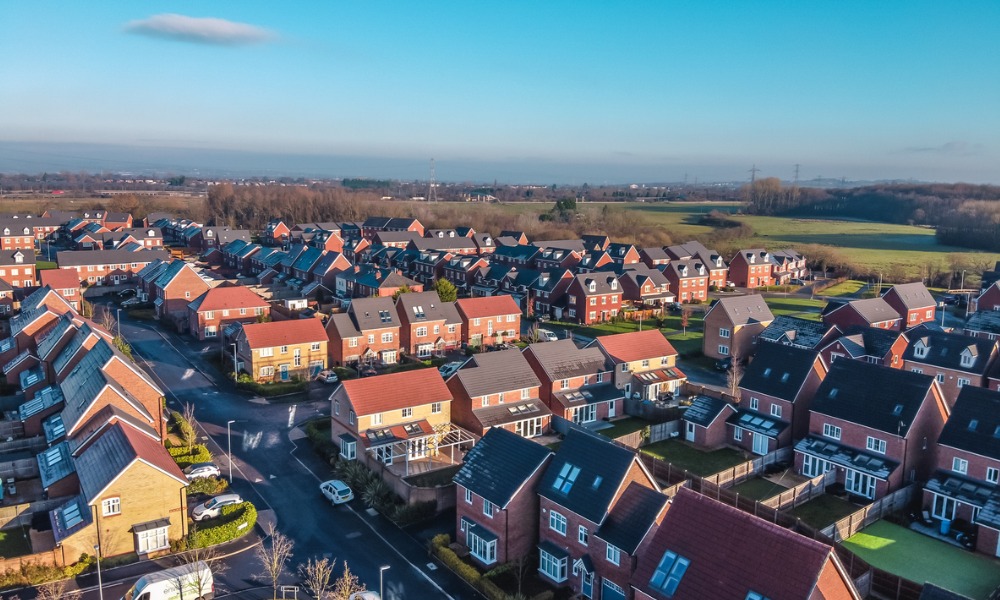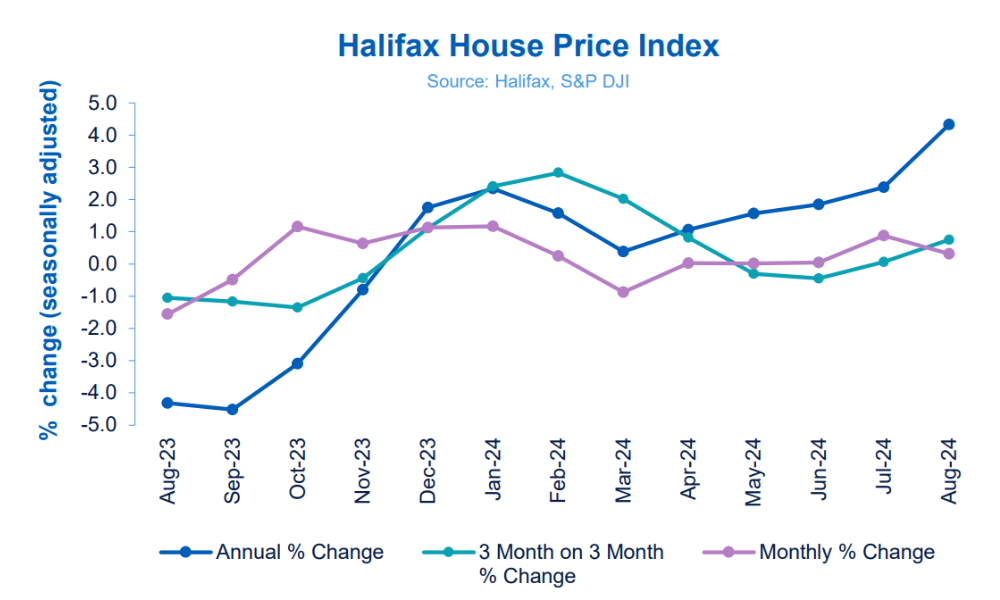Usual mid-summer slowdown had little effect on the housing market this year

House prices in the UK increased by 0.3% in August, following a 0.9% rise in July, according to the latest Halifax House Price Index.
The average price of a home now stands at £292,505. Annual growth has reached 4.3%, the highest rate since November 2022, although this figure reflects comparisons with weaker growth recorded a year ago.
“Recent price rises build on a largely positive summer for the UK housing market,” said Amanda Bryden, head of mortgages at Halifax. “Prospective homebuyers are feeling more confident thanks to easing interest rates.
“That optimism is reflected in the latest mortgage approval figures, now at their highest level in almost two years. Such has been the resilience of house prices that the average property is now just £1,000 shy of the record high set in June 2022 (£293,507).
“While this is welcome news for existing homeowners, affordability remains a significant challenge for many potential buyers still adjusting to higher mortgage costs. However, with market activity picking up and the possibility of further interest rate reductions to come, we expect house prices to continue their modest growth through the remainder of this year.”

Industry experts comment on market trends
Maeve Ward, head of intermediary sales at property lender Together, noted that buyer and seller confidence remained strong in August, contributing to the 0.3% price increase.
“With the Bank of England recently announcing its first rate reduction since 2021 and the next announcement due in a fortnight, we should see a continuation of rates among high street lenders falling, albeit at a slower pace than before until the next mini budget,” she said.
Ward also highlighted the potential for increased public investment under a Labour government, which could include funding for housebuilding to further stimulate the market. She advised buyers to explore various financial products, including shared ownership and bridging loans, to navigate the current environment.
Mark Harris, chief executive of mortgage broker SPF Private Clients, pointed out that the mortgage market has stabilised, with rates now falling after months of volatility.
“The biggest lenders are keen to attract new business, which is why we are seeing this frequent repricing downwards,” he said. “Five-year fixes have now dipped below 3.8%, initially for purchases and now for remortgages too. Furthermore, we are starting to see shorter-term products, such as three-year fixes, also edge below 4%.
“How quickly or how far pricing will continue to fall by is a little more open to debate. For a significant period of time, the ‘normal’ rate environment has been between 1.5 and 2.5%. However, borrowers coming off such products will find they are moving onto higher rates, although these are not as expensive as they would have been three months ago.”
Harris also noted a recent uptick in market activity, with estate agents reporting a busy August. As rates become more affordable, many buyers who had previously delayed transactions are now moving forward.
According to Karen Noye, mortgage expert at wealth management business Quilter, the typical mid-summer slowdown had little impact on the housing market this year.
“A dip in activity is usually to be expected in the summer months, but this year it appears to be minimal, and we are instead seeing signs of an ongoing recovery in the housing market,” she said. “Though the report from Halifax is somewhat at odds to others such as Nationwide which reported a fall in prices in August, there remains a general consensus that growth, at least on an annual basis, is picking up speed.”
Looking ahead, Noye highlighted the challenges for homeowners coming off fixed rate deals, who will face higher mortgage costs. Prospective buyers, she added, must also weigh the benefits of locking in a fixed rate mortgage versus opting for a tracker, in hopes of capitalising on further rate cuts.
“For all who find themselves needing a new mortgage deal or are looking to move home, professional mortgage advice will be invaluable in ensuring they are getting the best possible deal for their circumstances,” Noye advised.
House prices up in all nations and regions
The latest Halifax House Price Index also showed Northern Ireland having the strongest annual property price growth, rising by 9.8% in August. The average home in Northern Ireland now costs £201,043.
In Wales, house prices increased by 5.5% over the past year, with the average property now valued at £224,433.
Scotland saw more modest growth, with house prices rising by 1.7% annually. The average home in Scotland now costs £205,144.
The North West of England continues to show the strongest growth of any region within the country, with prices up 4.0% year-on-year to an average of £232,917.
London remains the most expensive place to buy a property in the UK, with average prices up 1.5% from last year, now standing at £536,056.
Any thoughts on the latest Halifax House Price Index? Share them with us by leaving a comment in the discussion box at the bottom of the page.



